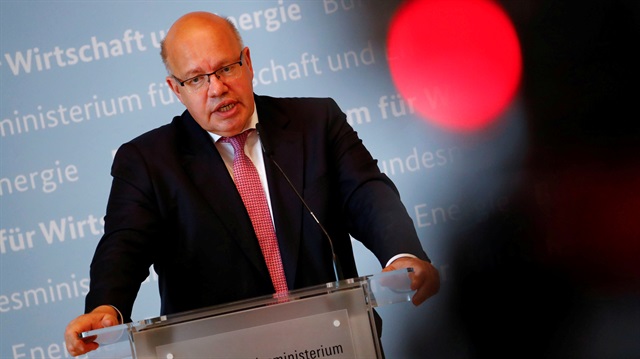
German economy minister does not rule out possibility of assistance to Turkey
Germany’s economy minister voiced support on Sunday for Turkey amid market worries after U.S. President Donald Trump slammed sanctions and raised tariffs on Turkey.
Responding to questions by citizens during an open house event of his ministry, Peter Altmaier underlined Turkey’s importance for Germany and for the European Union.
“We can have no interest in the destabilization of a country like Turkey with 80 million population, which also hosts around 4 million refugees,” he said.
Political tensions between Ankara and Washington had sparked worries in markets early this month, after Trump threatened to use economic pressure over the prosecution of an American pastor who faces terrorism-related charges in Turkey.
The Turkish lira declined but staged a recovery recently, after positive messages from European capitals and Qatar’s decision to invest $15 billion in Turkey.
Altmaier did not totally rule out possibility of assistance to Turkey, if Ankara would ask for support from its European partners.
But he stressed that the situation has not come to such a point.
“I do not think that at the moment we are in a situation where we have to take concrete decisions on financial or economic assistance,” he said.
Altmaier, a close ally of Chancellor Angela Merkel, acknowledged political differences between Berlin and Ankara on a number of issues, but also expressed his hope for overcoming them through dialogue.
Political relations between Turkey and Germany suffered several setbacks in the past two years, but both sides took steps in the recent months towards normalization of ties.
Turkish President Recep Tayyip Erdogan is expected to pay an official visit to Berlin on Sept. 28-29.
Germany is home to more than 3 million people with Turkish roots. Many of them are second or third-generations of Turkish families who migrated to Germany in the 1960s.
EU heavyweight Germany is Turkey’s main economic and trade partner, and more than 7,500 German companies are active in the country. In 2017, the bilateral trade volume reached €37.6 billion ($43.6 billion).
Hello, the comments you share on our site are a valuable resource for other users. Please respect other users and different opinions. Do not use rude, offensive, derogatory, or discriminatory language.
The floor is all yours.








